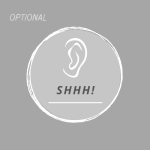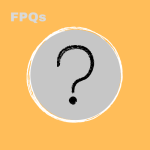 So many puzzle pieces…
So many puzzle pieces…
First, I want to acknowledge the many authors, psychologists, cognitive scientists, and Buddhists who have come before me in approaching writing and life as an ever-evolving, nurturing process. Just a few of the many: Viktor Frankl, Mihaly Csikszentmihalyi, Mark Epstein, William Zinsser, Peter Elbow, Julia Cameron, Eric Maisel, and Ruth Ozeki.[1]
Second, I thank the many students, colleagues, and focus-group participants who have tested these lessons. My instructional approach to first-person journalism has benefited enormously over the years from class discussions. When I tested a prototype of Finding Your First-Person Voice in spring 2022, I used feedback from 25-plus participants to shape the rest of the lessons.
Of special note are several participants or colleagues I interviewed individually: Kathy Kurto, Elissa Garay, Olivia Grant, and Kent Pittman.
 Last but not least, I’m grateful to Stacie Cassat Green and her Instructional Design Studio course that same spring for prodding me to create this open-source webbook. Part of my original proposal was to include brief episodes of a podcast titled “Smuggled In” to discuss the cognitive research behind the lessons. That podcast hasn’t come together yet (shhh!) but I still like the idea of “smuggling in” a few secrets about the connections among writing, thinking, and spirituality.
Last but not least, I’m grateful to Stacie Cassat Green and her Instructional Design Studio course that same spring for prodding me to create this open-source webbook. Part of my original proposal was to include brief episodes of a podcast titled “Smuggled In” to discuss the cognitive research behind the lessons. That podcast hasn’t come together yet (shhh!) but I still like the idea of “smuggling in” a few secrets about the connections among writing, thinking, and spirituality.
After all, Finding Your First-Person Voice is about the expressive quality of voice, both spoken and written. The fact that I may go on to create something new, adding an audio component to these lessons, illustrates why learning projects aren’t static. As with the writing we do throughout our lives, lessons change and grow and take us places we might never have predicted earlier on.
 My deep thanks to all the people in my life – family, friends, colleagues, my favorite authors and journalists – who have accompanied me for years. I’m more convinced than ever that personal storytelling helps others make meaning of their experiences. That’s not a secret, but the rapid pace of digital life can obscure the true value of storytelling.
My deep thanks to all the people in my life – family, friends, colleagues, my favorite authors and journalists – who have accompanied me for years. I’m more convinced than ever that personal storytelling helps others make meaning of their experiences. That’s not a secret, but the rapid pace of digital life can obscure the true value of storytelling.
Do I still have questions? Of course! There’s the ongoing puzzle of myself, for starters, along with writing and life. Yet what a joy it is to keep asking.
— Martha Nichols
- Of particular note: Viktor E. Frankl in Man's Search for Meaning (originally published in 1946); Mihaly Csikszentmihalyi in Flow: The Psychology of Optimal Experience (Harper & Row, 1990); and Mark Epstein in Thoughts Without a Thinker: Psychotherapy from a Buddhist Perspective (Basic Books, 1995). ↵